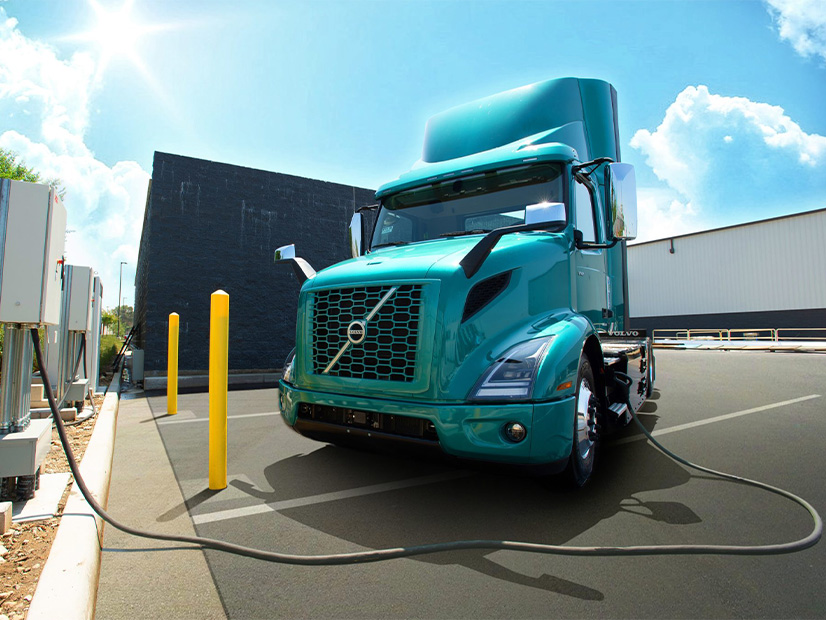The New Jersey Assembly Transportation and Independent Authorities Committee on Sept. 19 advanced legislation that would require utilities to submit tariffs for commercial direct current fast chargers (DCFCs) and limit their ability to set their rates based on peak demand.
The committee voted 7-5 along party lines to advance A4624, which would require utilities to “utilize alternatives to both traditional demand-based rate structures and capacity demand charges” and “establish cost equity between commercial electric vehicle tariffs and residential tariffs.” Tariffs would be due to the Board of Public Utilities for approval within 180 days after the bill became law.
As in other states, the limited availability of chargers in New Jersey is considered a key stumbling block to EV uptake. The state in June had 185,000 EVs on the road, which are served by 2,421 Level 2 ports and 1,249 DCFC ports, according to Atlas Public Policy, which provides information to the New Jersey Department of Environmental Protection. That’s about one DCFC port per 148 vehicles.
Committee Chair Clinton Calabrese, the bill’s sponsor, said A4624 is needed to stimulate investment in DCFCs. Developers have shied away from investing in high-speed chargers in the state because the elevated rate levels stemming from the use of peak demand calculation methods make the infrastructure economically unviable, he said.
“This bill is necessary and vital [to] advancing New Jersey’s electric vehicle infrastructure by ensuring a fair and supportive rate structure for charging stations,” Calabrese said. “The bill is essential to overcoming a significant financial hurdle — which is known as demand charges — that has been a barrier to investment in fast-charging infrastructure across the state.”
Demand charges were created to address the needs of “large industrial customers who use substantial amounts of electricity consistently, and they are intended to help utilities recover those costs of maintaining the grid’s capacity to meet spikes in demand,” Calabrese said. But while DCFCs may have brief, high demand peaks, “they don’t use as much energy overall during the billing cycle,” he said.
Calabrese added that he had amended the bill to add a “phased approach” that would give businesses “certainty and stability” by initially setting rates low and introducing demand-based rates over time as EV charging around the state increased.
The bill would also require any new rate-setting system to be “non-volumetric,” and it explicitly requires utilities’ tariffs to “accelerate third-party investment in electric vehicle charging infrastructure” and “promote electric vehicle adoption in the state.”
Among the groups that opposed the bill were the Environmental Defense Fund and Clean Water Action, as well as business groups including the New Jersey Business & Industry Association (NJBIA), the New Jersey Chamber of Commerce and the New Jersey Utilities Association.
Testifying before the committee, Doug O’Malley, director of Environment New Jersey, said the “bill’s intent is exactly right” in its effort to put more chargers in communities. But it also is “essentially short-circuiting a process that is already ongoing” through the BPU. One of the group’s concerns is that it does not resolve the question of who would pay for the discounted rates if the commercial customers paid less, he said.
Rhiannon Davis, director of government affairs at Electrify America, which has 4,200 chargers across the U.S., said in support of the bill that “demand charges can account for over 90% of electricity costs for DC fast charging and lead to operating costs that far exceed the revenue these chargers can receive from customer payments.”
She said a typical Electrify America DCFC station has four to six chargers that serve customers at a year-round rate that is calculated at a peak of “just a few hours of charging over the summer.”
Eric DeGesero, a lobbyist representing the New Jersey Motor Truck Association, said he initially supported the bill but was not sure of the organization’s position after the amendments were added.
He said that in general, demand charges add to the hurdles blocking electric truck adoption, which include a price tag that is about three times that of a diesel truck and a reduction in the amount of cargo that can be carried because the battery takes up so much space and weight.
DeGesero added that truck charging costs are driven up dramatically by the amount of electricity needed, which requires the installation of new interstate transmission lines and new substations.
While some Republican committee members said they were swayed to vote against the bill, Democratic legislators backed it.
“I know that there’s going to be additional discussion about this and potential changes down the road,” Assemblymember David Bailey Jr. (D) said. “I am going to vote ‘yes’ for now.”
EV Parking Dilemma
With a 7-4 vote, the committee also advanced A3035, which would prohibit gas-fueled vehicles from parking in a space with an EV charger in place. Violation of the law could incur a $55 fine for the first offense and $100 for the second offense.
Opponents of the bill argued that the issue would be better handled at the local level.
But O’Malley called it a “no-brainer,” adding that a regular car parking in front of an EV charger is the equivalent of someone parking in front of a gas pump.
“EV drivers that need to have that spot need to know that when you look on an app … and it says that a spot is open,” that the space is available, he said. If “you pull in and the spot’s blocked, that’s a huge problem.”
Chair Calabrese, who also sponsored the bill, said a statewide law is far simpler than local regulation, the latter of which “would mean every municipality would have to pass an ordinance for this.”



